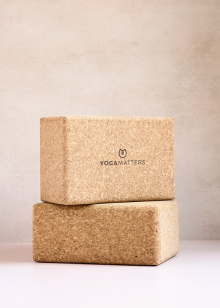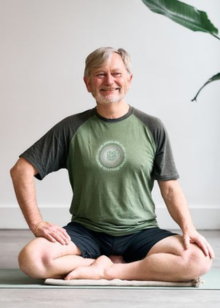We’re fast approaching the season of gift-giving and plenty of receiving, but do we always have to expect something in return when we make our own offering? Studies show that giving without the expectation of receiving; Volunteering, helping others or practicing selfless service, can decrease blood pressure and chronic pain, boost mood levels, strengthen the immune system and even increase longevity. Poets, prophets and leaders have expounded the benefits of generosity. Indeed a huge part of the practice of yoga off the mat is dedicated to Karma Yoga, and the path of selfless service.
Karma Yoga
The revered text the Bhagavad Gita is one of the most well known and most translated books to have come out of India. Today, aspects of the Bhagavad Gita are taught on teacher training programmes. Many modern books like The Great Work Of Your Life by Stephen Cope, and The Book Of Dharma by Simon Haas are based upon its wisdom. The Bhagavad Gita presents a conversation between Arjuna the warrior and Krishna, a representation of God, and one of the vital pillars of this text is Karma Yoga, the ‘Yoga of Action’ and ‘selfless service’. Karma yoga is about acting or giving without the need to see results, and without the expectation of reward. It is this way of living Krishna says, that can help free the mind from the binds of anxiety and anguish, and propel us towards a life of true purpose and enlightenment.
“There are two ways to lead a fulfilling life: the path of knowledge and the path of selfless action .You have a right to perform your duties, but you are not entitled to the fruits of your actions.” -Krishna
Helpers High
In truth, we’re all constantly engaged in action, whether it’s the act of thinking, speaking, giving, making, working or scrolling endlessly through social media. But the way we act can transform the way we feel on a daily basis. Scientists are currently studying the ‘Helper’s High’ phenomenon. This occurs when we do something good for the sake of doing it. Two large studies conducted by the Institute For Research On Unlimited Love have found that ‘older adults who volunteered reaped benefits in their health and well-being. Those who volunteered were living longer than non-volunteers. Another large study found a 44% reduction in early death among those who volunteered a lot — a greater effect than exercising four times a week’.
It seems that when we choose to engage in the act of doing without giving thought to what we’ll subsequently get in return, we’re able to be far more present and mindful than when we’re thinking about the rewards we might reap. Indeed, engaging fully in action is part of the practice of mindfulness itself and the way to live a happier life, as Thich Nhat Hanh says; “Don’t do any task in order to get it over with. Resolve to do each job in a relaxed way, with all your attention. Enjoy and be one with your work. There is no way to happiness – happiness is the way”.
The Act of Giving
Being present in the act of giving is something we can all do in order to practice yoga off the mat, benefitting not just ourselves but others too. The Sanksrit word Seva means ‘selfless service’. Seva is considered an essential part of most spiritual practices. From the religions of Christianity and Hinduism, to addiction recovery programmes, self-improvement courses to the act of simply being a kind and decent human being.
In their book The New Health Rules, Dr. Frank Lipman and Danielle Claro recommend selfless service as a way to simply improve physical and emotional health; “Forget pay-it-forward or anything about karma. This is just about being nice and good with no expectations of reciprocity or personal gain. Let someone cut ahead of you in line, listen to someone who needs an ear, give a compliment you really mean. Make your default mode one of generosity. It’s a nice way to live and it’s contagious.”
Selfless Service can help us connect to others in a genuine and meaningful way. When we act from a place of non-expectation, we tend to act not from a place of ego and ‘I-me-my’, but from a place closest to our true self. The more we engage in selfless service, the more we begin to move past the ego, past any self-judgement and comparison, past sensations of greed and attachment, and ever closer to connecting with our truest, highest self, and the true meaning of yoga.














